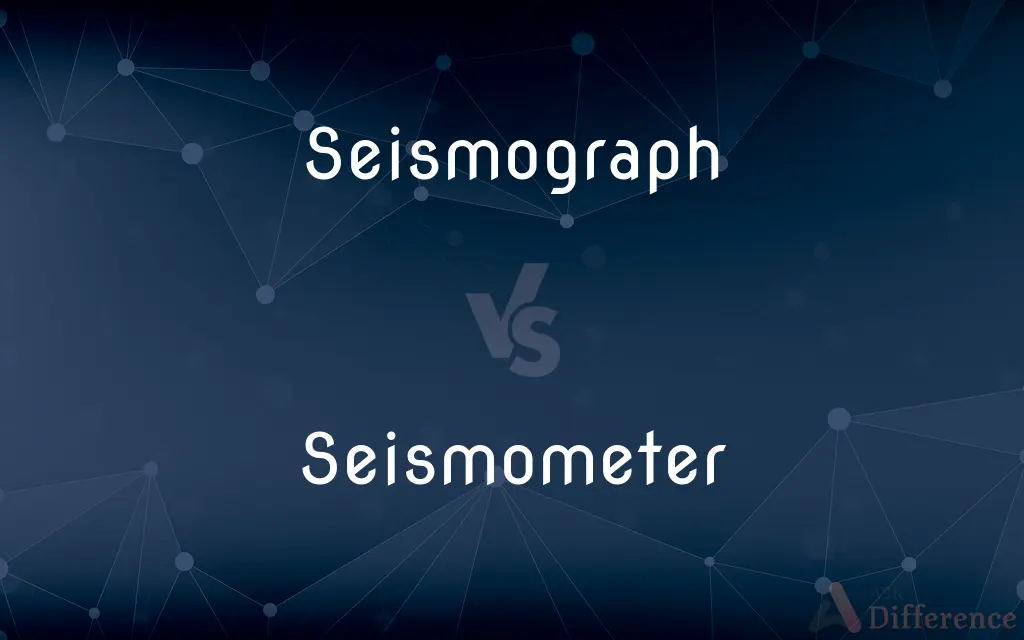Seismograph vs. Seismometer — What's the Difference?

Difference Between Seismograph and Seismometer
ADVERTISEMENT
Compare with Definitions
Seismograph
An instrument for automatically detecting and recording the intensity, direction, and duration of a movement of the ground, especially of an earthquake.
Seismometer
A seismometer is an instrument that responds to ground noises and shaking such as caused by earthquakes, volcanic eruptions, and explosions. They are usually combined with a timing device and a recording device to form a seismograph.
Seismograph
An instrument that automatically detects and records the intensity, direction and duration of earthquakes and similar events.
Seismometer
A detecting device that receives seismic impulses.
Seismograph
An apparatus for registering the shocks and undulatory motions of earthquakes.
ADVERTISEMENT
Seismometer
(geology) A device used by seismologists to detect and measure seismic waves and therefore locate earthquakes etc; a seismograph.
Seismograph
A measuring instrument for detecting and measuring the intensity and direction and duration of movements of the ground (as an earthquake)
Seismometer
An instrument for measuring the direction, duration, and force of earthquakes and like concussions.
Share Your Discovery

Previous Comparison
Town vs. Borough
Next Comparison
Turpentine vs. Acetone















































